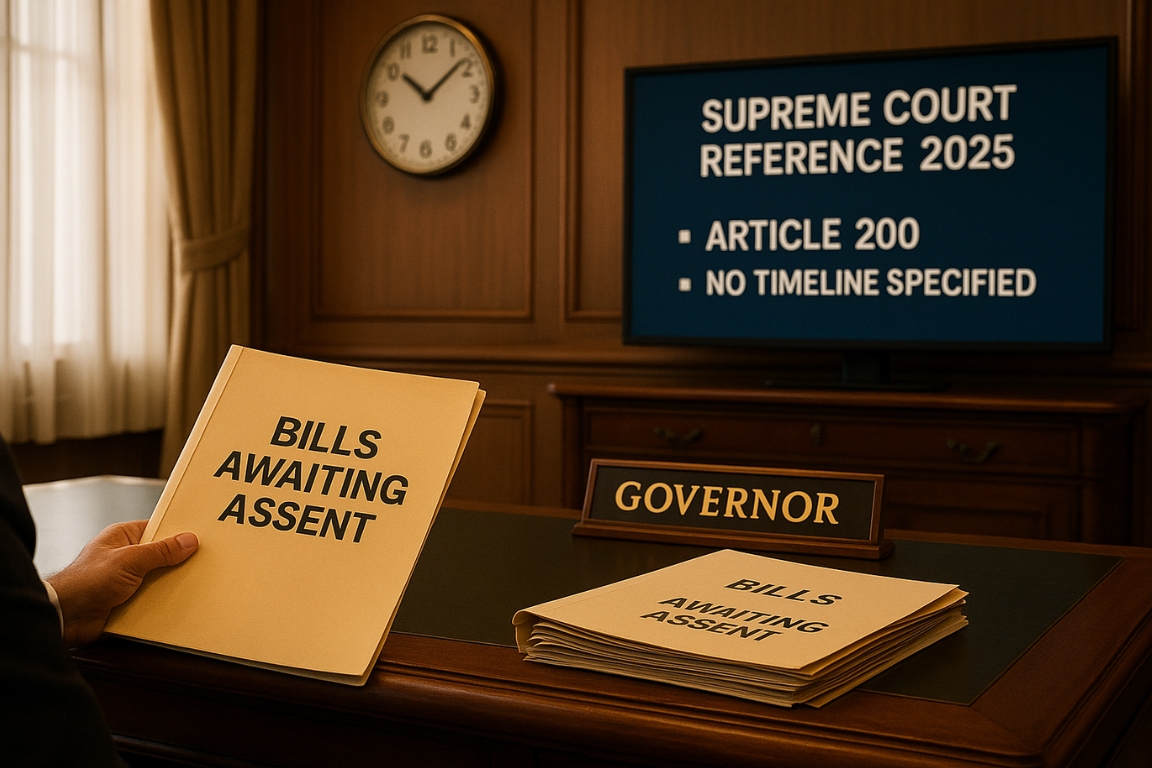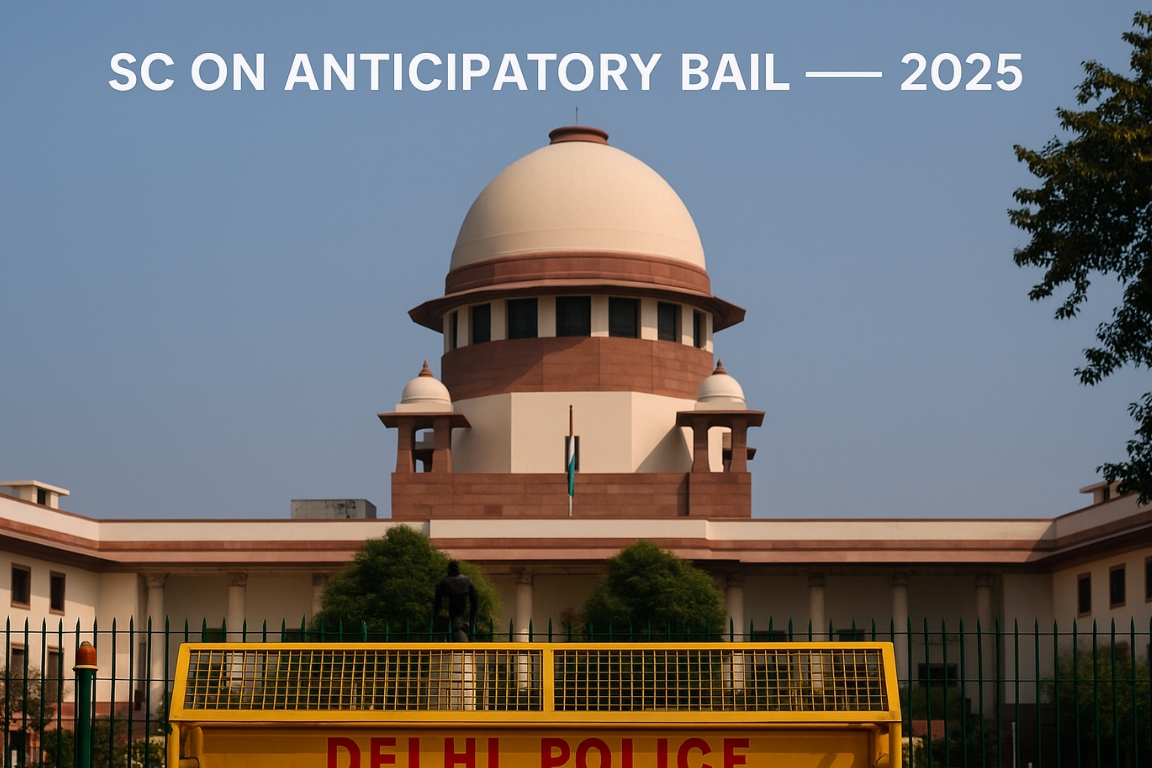The Supreme Court is examining a Presidential reference (May 2025) on whether timelines can be fixed for Governors and the President to act on Bills passed by State legislatures, after its April 2025 ruling had prescribed a three-month period for such decisions.
Supreme Court’s April 2025 Judgment
- Held that if the Governor withholds assent or reserves the Bill, he/she must act within 3 months.
- If the State Legislature re-passes a Bill, the Governor is bound to assent.
- President must decide on reserved Bills within 3 months.
- Delays beyond the timeline are subject to judicial review.

Centre’s Position
- Courts cannot impose timelines where the Constitution does not specify them.
- Article 163(2): Governor’s decision on whether discretion applies is final and beyond judicial inquiry.
- Political disputes between State, Governor, and President should be resolved within the constitutional-political framework, not judicially.
Opposition States’ Concerns
- Governors in Opposition-ruled States have delayed or reserved Bills selectively.
- Such delays ignore ministerial advice and undermine the mandate of the elected government.
- Argue that discretion is being misused as a political tool.
Commission Recommendations
- Sarkaria Commission (1987): Governor should act on ministerial advice, reserve Bills only in rare cases of clear unconstitutionality; President should decide within 6 months.
- Punchhi Commission (2010): Governor should take a decision on Bills within 6 months.
Issues in Debate
- Lack of constitutional timelines leads to executive inaction.
- Politicisation of the Governor’s role undermines federalism.
- Uncertainty affects law-making and governance at the State level.
Way Forward
- Respect the April 2025 SC ruling prescribing timelines.
- Ensure Governors act as constitutional heads, not political actors.
- Establish a uniform framework for timely assent to Bills.
- Strengthen cooperative federalism by balancing Centre-State relations.
- Encourage political consensus to depoliticise the Governor’s office.
CONSTITUTIONAL PROVISIONS
- Article 200: When a Bill is presented to the Governor, four options exist:
- Assent to the Bill.
- Withhold assent (reject).
- Return it for reconsideration.
- Reserve it for the President’s consideration.
- Article 201: President may grant or withhold assent for reserved Bills, but no timeline is specified.
- Article 163(1): Governor acts on the aid and advice of the Council of Ministers, except in limited discretionary cases.
Conclusion
The UNICEF report shows that the global food environment is failing children, with unhealthy diets becoming the norm. India and other countries must adopt comprehensive policies, stricter regulation, and school-level nutrition reforms to curb childhood obesity and ensure healthier future generations.





